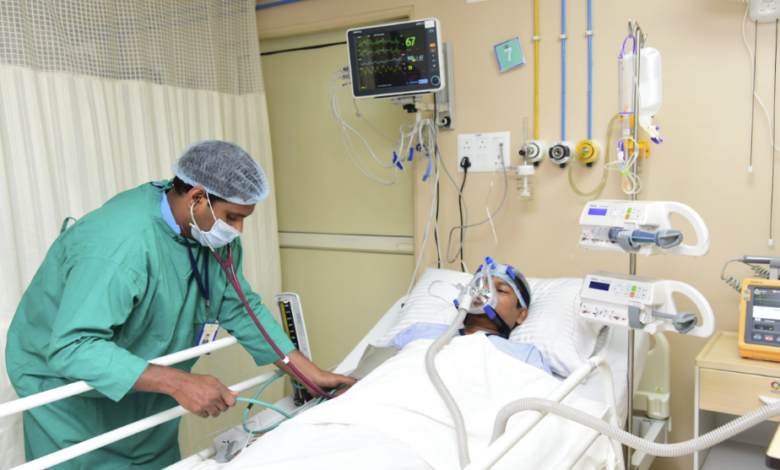Top Things to Consider Before Visiting a Hospital in Ranchi

Walking into any hospital can feel unsettling. Maybe it’s the mix of sterile corridors and the low hum of machines, or the quiet shuffle of people waiting to be connected to a doctor. It’s not just about treatment—it’s about trust. And when the choice is a hospital in Ranchi, it’s not always easy to know where to start looking for the answers.
Most people glance at a hospital’s name, a few reviews, and assume it’ll be fine. But that’s rarely the full story. A hospital visit, even for something small, means putting faith in people you barely know. It’s worth thinking twice about the details most ignore.
1. What Are You Really Looking For?
Sometimes people rush to the emergency room when a quick consultation would do. Other times, they delay check-ups, hoping the annoying symptoms vanish. Both can backfire. So, before picking a place, ask:
- Is this routine, or do I need emergency care?
- Would a specialist be better than a general physician?
- Do I need facilities like diagnostic tests or a day-care procedure?
It sounds obvious, but having a clear purpose saves time and stress.
2. Facilities That Match Your Needs
Not every hospital covers every speciality. Some are strong in trauma care, while others handle chronic conditions better. Take a moment to check if they have what you’ll need tomorrow, not just today.
Does the place perform laparoscopic procedures, or are they stuck with older methods that mean longer recovery? It’s the kind of detail most people realise only when it’s too late.
3. Doctors Who Listen
A degree is one thing; attention is another. The right doctor will explain, not dismiss. Ask yourself after one consultation—did you leave knowing more or feeling more confused? If it’s the latter, that’s a sign.
And let’s be real, the availability of doctors matters. It’s frustrating when you only meet assistants or get shuffled through rotating shifts.
4. Costs and Clarity
Hospitals often shy away from transparent billing. That’s not okay. A simple question—“Can I get an estimate for this treatment?”—shouldn’t cause hesitation. Whether it’s consultation fees, admission charges, or insurance claims, clarity upfront is non-negotiable.
A good practice is to get at least a rough breakdown. You’ll avoid surprises later.
See also: Top Mental Health and Burnout Apps to Boost Your Wellbeing in 2025
5. Cleanliness Speaks Volumes
You don’t need to be an expert to judge this. One look at the floors, bedsheets, or restrooms tells you everything. Poor hygiene means poor management. And in a place where infection risk is high, you want to feel confident that basic standards are met.
6. Time Management
Nobody likes waiting for hours when a 15-minute appointment is all they need. It’s not just about convenience; poor scheduling often means poor internal coordination. Hospitals that value time usually have smoother care across the board.
7. Accessibility and Communication
If an emergency comes up, how easy is it for someone to reach you or get updates? A reliable help desk, clear visitor policies, and accessible information are signs of a place that actually cares.
8. Aftercare Isn’t Optional
Follow-ups are as critical as the initial treatment. Will they remind you about reports, medications, or review appointments? If they don’t have a plan for this, you’ll find yourself lost in paperwork and confusion.
Even simple procedures like a pulmonary function test should be easy to track without multiple visits.
9. What Do Others Say?
Reviews and recommendations help, but they can’t be your only guide. Call the hospital. See how they talk to you on the phone. Do they sound rushed or willing to explain? That first interaction often says more than any advertisement.
10. Don’t Overthink, But Don’t Underthink Either
It’s impossible to predict everything. Even the best hospitals have off days. But walking in with a rough checklist—cleanliness, communication, doctor availability, and costs—can spare you from unnecessary stress.
11. Think Beyond the Walls
A hospital isn’t just a building. It’s a system. One that involves dozens of people across departments who never meet you but still affect your care. The lab technician, the pharmacist, the person logging your details at the counter—they all matter. And if just one of them is careless, things fall through the cracks.
Someone once shared an experience of a misplaced blood report that delayed diagnosis by two days. Not dramatic on paper, but when you’re in pain and waiting for answers, it feels like a lifetime. That’s the kind of thing you won’t find in brochures. You only discover it the hard way.
Ask around—not just “is this hospital good?” but “what went wrong when you visited?” You’ll learn a lot more from that.
Another overlooked point? Distance. It might sound minor now, but if you have to go there repeatedly for tests, consultations, or therapy, you’ll feel the burden. Especially if public transport options are limited or parking is a hassle.
Also, don’t forget visiting hours. If a family member is involved in your care, make sure they’re not blocked from being around when it matters. No one wants red tape during an emergency.
Closing Thoughts
Choosing a hospital isn’t just another errand. It’s about finding a place where care feels genuine, where systems don’t crumble under pressure, and where you can trust the process even if the outcome is uncertain. Think it through, ask the small questions, and don’t settle for less than clarity.




